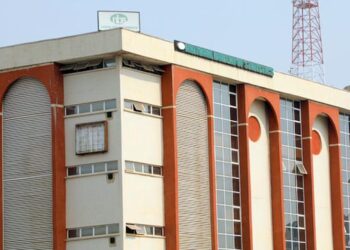The National Bureau of Statistics (NBS) is set to rebase Nigeria’s Gross Domestic Product (GDP) this year, using 2019 as the new base year instead of 2010.
The base year for GDP calculations is being updated from 2010, which has been in use for the past 15 years, to 2019.
This means that constant prices previously based on 2010 will now be based on 2019.
On January 9, 2024, the NBS in collaboration with the Nigerian Economic Summit Group (NESG), organized a workshop to explain the rebasing process to market and media stakeholders.
What rebasing means
Basing GDP against a benchmark of prices from a particular year over a duration of years to determine the GDP for current periods is known as rebasing.
The adjustment in the base year aims to provide a more accurate reflection of the current structure and activities of the Nigerian economy.
The 2025 GDP rates would be calculated with a new constant year that has now been selected instead of the usual 2010 that was adopted over 15 years ago.
According to Dr Baba Yusuf, Head of National Accounts at NBS during the panel session at the workshop, The GDP will be backcasted to 1981.
The base year is meant to change periodically, Dr. Moses Waniko stated clearly that the 2008 Systems of National Accounts recommends rebasing national accounts every five years and that NBS committed to adhering to this timeline moving forward.
Reasons NBS chose 2019 as the new base year
The following outlines the rationale and process behind choosing 2019 as the base year according to the presentation by NBS:
The relatively stable year:
Dr Waniko stated that 2019 was a year of relative economic stability in Nigeria 2020-2022.
- The economy’s conditions during this year provided a more representative baseline for rebasing.
- The year 2020 – 2022 were excluded due to economic disruptions from the pandemic and instability, following guidance from the International Monetary Fund (IMF).
Data availability and relevance:
Major surveys, such as the Nigeria Living Standard Survey (NLSS), which gathers household and poverty data, were conducted in 2019.
- These datasets were crucial for rebasing efforts.
- Activities such as domestic households as employers of labor, which were absent in the 2010 base year, were adequately captured in 2019.
Reflecting the evolving economy:
Digital economic activities, significantly underrepresented in 2010, saw notable growth and were better captured in 2019.
New areas covered for the 2019 rebase
The rebasing process includes extensive updates in the scope of economic activities captured, with particular focus on:
- Digital Economic Activities: Inclusion of e-commerce, fintech, and other online services.
- Emerging Sectors: Data from modular refineries, pension fund administrators, and quarrying industries.
- Social Programs: Activities from the National Health Insurance Scheme (NHIS) and the Nigerian Social Insurance Trust Fund (NSITF).
What it means for Nigeria – Implication for Nigeria as a country
The GDP rebase using the new base year will increase the GDP value, while key economic metrics will change.
- This does not indicate that there is more money in circulation but will be a reflection of the current hike in the prices of goods and services.
- If the tax revenues do not grow proportionally to the new value of GDP, the tax-to-GDP ratio will decrease highlighting low revenue generation relative to the production of goods and services.
- Similarly, the debt-to-GDP ratio will significantly decrease as the GDP value rises, indicating that the country’s debt stock appears smaller, and the country can still incur more debt. misinterpretation of this metric could mislead policymakers.
Moreso, a lower debt-to-GDP ratio may suggest that Nigeria can repay its debts without relying on further borrowing. However, this does not necessarily reflect the reality of the country’s fiscal health, given that the budget shows expenditures exceeding revenues.
What it means for ordinary Nigerians – Implication for citizens
The GDP rebase using the new base year will lead to an increase in GDP value. An increased GDP value could imply a higher standard of living for Nigerians.
A rise in the GDP per capita would suggest improved economic well-being. However, the limitation to the GDP per capital as regards portraying the standard of living is flawed because it does not take into consideration the cost of living.
Key differences between the 2019 base year and 2010
The 2019 base year includes extensive surveys like the National Business Sample Census (NBSC) and the National Agricultural Sample Survey (2022), covering all sectors at national and state levels. In contrast, the 2010 base year included only 14 sectors.
Also, the surveys now provide a more comprehensive view of informal economic activities, which were previously underrepresented.
Furthermore, the rebasing captures activities in the digital economy, modular refineries, quarrying, and pension fund management, among others.

























